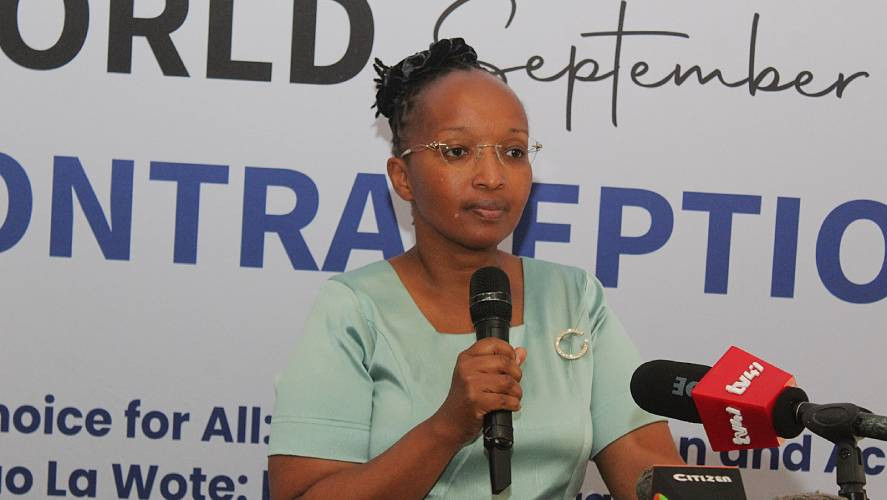
Condoms remain the go-to contraceptives for sexually active unmarried women in Kenya, a report by the Ministry of Health reveals.
Among married women, however, the preference shifts, with injectables emerging as the top choice at 20 per cent. Implants follow closely at 19 per cent, while pills account for 8 per cent of use.
The report, which comes a day to World Contraceptives Day, also notes that at least 6.6 million women in Kenya are currently using modern contraceptives.
Of these, 62 percent obtain their methods from public health facilities, while a third rely on private providers such as pharmacies and clinics.
“Family planning empowers people to decide freely and responsibly on the number and spacing of their children. It is a key life-saving intervention that significantly improves maternal and child health outcomes,” the Ministry notes.
Additionally, awareness of contraception is almost universal; 99 per cent of women have heard of at least one modern method.
However, access and use tell a more complex story. One in seven married women say they would like to avoid pregnancy, yet are not using any form of contraception.
For those who stop using, reasons vary: three in ten discontinue because they want to conceive, while two in ten cite health concerns or side effects.
- Unpacking male contraception: Why men should embrace family planning
- Eight-year contraceptive to be introduced in Kenya
- Kenya marks World Contraception Day with call for greater investment in family planning
- Why Kenyan women are no longer interested in having children
Keep Reading
Still, there is hope. Nearly half of women not currently on contraception say they intend to use it in the future.
“If every woman who wanted contraception could get it, use among married women would rise to three in four,” the report notes, highlighting the role of different actors in shaping access.
Government facilities remain the backbone of service delivery, the private sector adds convenience, while NGOs and development partners bridge gaps and drive outreach.
Communities and households, meanwhile, play a critical role in encouraging acceptance and shared responsibility.
Beyond health, the report stresses the wider benefits of contraception.
“Access to contraception reduces unintended pregnancies and maternal deaths, promoting healthier families and communities. It also has a strong positive impact on socio-economic development by supporting female workforce participation and increasing household savings,” it says, adding that Kenya has set ambitious 2030 family planning 2030 to raise modern contraceptive use to 64 per cent.
 The Standard Group Plc is a multi-media organization with investments in media
platforms spanning newspaper print
operations, television, radio broadcasting, digital and online services. The
Standard Group is recognized as a
leading multi-media house in Kenya with a key influence in matters of national
and international interest.
The Standard Group Plc is a multi-media organization with investments in media
platforms spanning newspaper print
operations, television, radio broadcasting, digital and online services. The
Standard Group is recognized as a
leading multi-media house in Kenya with a key influence in matters of national
and international interest.











